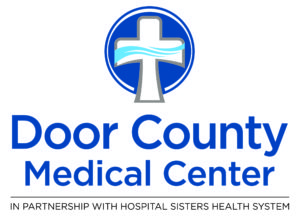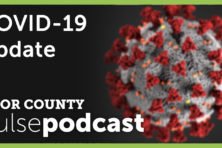Hospital Staff Makes Plea for Vaccinations
- Share
- Tweet
- Pin
- Share

Door County Medical Center staff released the following joint letter Monday urging residents and visitors to Door County to get the COVID-19 vaccine.
As physicians, nurse practitioners and physician assistants at Door County Medical Center, we feel privileged to be able to care for our community. In Door County, this means we’re caring for our friends, families and neighbors. We are humbled by this, and take our jobs very seriously. It is because of this that we urge all who have not received the COVID-19 vaccine to get it as soon as you can. Every physician, nurse practitioner, and physician’s assistant at DCMC have received the COVID-19 vaccine.
While our country and our county have been doing well with the vaccination program, we can do better. We must do better. There was a time when we could not meet the demand for the vaccine. Now, we have more vaccine than people requesting it. While hesitancy is certainly understandable, we live in unprecedented times. We feel that the risk of taking the vaccine is far less than the risk of declining. By taking the vaccine, we not only protect ourselves but also our family and our coworkers and our neighbors. Mass vaccination is the only way we are going to get out of the pandemic and beat COVID. It will help people can get back to work and the economy can get back on track.
We hope the following explanation of how the Pfizer and Moderna vaccines work may influence the hesitant to choose vaccination.
The technology for the creation of the mRNA vaccines (Pfizer and Moderna) has been in the works for more than 10 years in the setting of HIV and cancer research. To date more than 200 million Americans have received at least one vaccine. While some people may develop flu-like symptoms for a day or two, others have little reaction at all. Only 30% of vaccine recipients will have these symptoms. The symptoms are not “side effects.” They represent the body “revving up” it’s immune system to be ready for COVID.
But what about this mRNA business? What is it? Can it affect our genetic code? These questions weigh heavily on many. Let’s harken back to our high school biology class. DNA is the template for life. Our 46 chromosomes (23 pairs) make us who we are. DNA encodes messenger RNA to bring the keys of life to a part of the cells called ribosomes. Messenger RNA enters the ribosomes and codes for a protein that looks like the spike protein on the coronavirus. Messenger RNA is an unstable molecule and after it codes for the protein, it falls apart in the muscle cell and the pieces of the messenger RNA are recycled by the muscle cells. There is no tampering with the DNA, because the mRNA has no way to get into the cell’s nucleus (the only place where DNA is located). The vaccine induces the muscle cells to produce the Coronavirus protein that then enters the person’s circulation. The person’s immune system then recognizes that these proteins do not belong, and the immune system creates antibodies to the protein. So when the immune system “sees” the Coronavirus (COVID-19) with their spike proteins in the circulation the antibodies attack and destroy the Coronavirus. Thus far, the mRNA vaccines have been proven to be effective and safe with over 200 million doses given.
Having as many people as possible vaccinated will reduce the spread of the Coronavirus and thereby reduce the chance of a mutation to a more contagious strain. Mass vaccination can help prevent mutations that could change the spike proteins that the current vaccines target. We need to continue to vaccinate in order to move faster than the Coronavirus can mutate. The longer we wait, the more mutations will develop, and the longer the pandemic will stretch on.
All of us urge you to receive the vaccination now. It is the only road through to the end.
In Good Health,
Richard Hogan, MD Marc Binard, MD
Francis McCormack, MD James F. Heise, MD, MBA
Holly Ullman-Herlache, APNP Ronald Kodras, MD
Mollie Petersen, PA-C Martin Finck, MD
Heidi Derbick, APNP Kurtis Scheer, MD
Holly Swain, PA-C Robyn Weilbaker, APNP
Andrzej Kurek, MD James Kambol, MD
Amy Fogarty, MD Kelton Reitz, DO
Paula Hobart, APNP George Gorchynsky, MD
Chona Antonio, MD Tomasz Michalski, MD
Paul Board, MD Mark Fergus, APNP
Callie Krauel, LCSW Josh Rebhan, MD
Kristine Matysiak, PA-C Brian Matysiak, MD
Michael DeFrank, MD Ellen Knipfer, APNP
Sue Wercheck, APNP Mark Jordan, MD
Dorene Dempster, MD Chas Shutt, MD
Ruth Sohns, DNP Michael St. Jean, MD
Brian Kasalajtis, MD Rory Johnson, MD
Elizabeth Gaida, MD Susan Exworthy LCSW, CSAC
Allycia Bretl, LCSW, CSAC Barb Johnson-Giese, LCSW, CSAC, ICS
Megan Norris, MD


